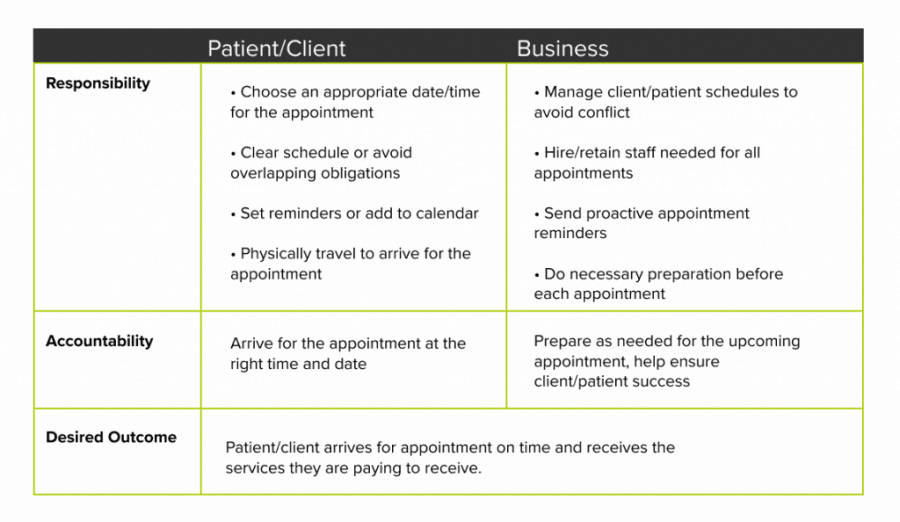Estimated reading time: 6 minutes
Most business schools dive into existential topics that surround business but may seem superfluous to actual day-to-day operations. Two ideas often covered are accountability vs. responsibility.
In the business world, we often see these terms used in connection with things like meeting quarterly goals or undertaking major projects. So much so that many people believe these words mean the same thing. To be accountable is also to be responsible—right?
By unpacking these two terms, we can see that they’re not simply vapid buzzwords meant to spice up your PowerPoint.
Knowing and understanding the difference between accountability and responsibility is actually quite useful for understanding how businesses should think about what these terms mean and what effect it has on the performance of individuals and teams.
The first thing to know is that some level of accountability is often a driving force for success. Projects often fall apart without a specific party being accountable for the outcome. Entire goals get thrown out the window.
Let’s explore what accountability vs. responsibility really means in more detail.
What Does It Mean to Be Accountable?


Accountability is a way of understanding the outcomes of a particular scenario.
In other words, an accountable party is a person or a group that plays a role in achieving something. That achievement doesn’t necessarily need to be binary. Potential outcomes generally occupy a spectrum of possibilities, from unfavorable to favorable.
Consider a company’s quarterly sales goals.
Multiple stakeholders will have some level of accountability for the outcome (e.g., revenue earned in a quarter). The company will measure the result in dollars and set a specific goal or benchmark marks for what they consider “good.” Anything above that figure is considered great, and anything below is considered poor.
Accountability must ultimately fall on one specific person or group by most standard definitions. That is to say, there must be one central authority that takes on accountability for the success or failure of a particular outcome. There is usually a lack of incentive or management to drive success when a specific party is not held accountable.
In business, the accountable party is often a high-level executive tasked with meeting a certain goal, a project manager, or a task force put in charge of driving forward a particular project.
How Do We Define Responsibility?

We generally define responsibility as a specific action or task that one person is expected to complete. In this way, we often think of responsibilities as a binary item—either they’re completed or they’re not.
Let’s return to the example of quarterly sales figures. Although multiple stakeholders are ultimately accountable for helping the company reach its goals, each stakeholder has varying responsibilities to achieve those specific goals.
For example, it may be the Marketing Director’s responsibility to generate leads for the sales team (and they may be individually accountable for achieving a certain goal). But it’s not their responsibility to be sure that the sales team has enough staff to make the appropriate number of sales calls.
If we zoom in even further, the Marketing Director has likely delegated certain tasks to others on her team. Those tasks become the responsibility of the assigned person. However, the Marketing Director is ultimately accountable for his or her team completing all tasks as part of the overall outcome.
Unraveling this connection—and differentiation—between accountability and responsibility is important for designing teams and systems that will most likely lead to successful outcomes.
Accountability vs Responsibility
These two terms are technically different. But they are both commonly used to assign blame (or credit) for a specific outcome. They are used similarly because accountability and responsibility are closely related terms and often intertwined.
To better understand how these terms can be so closely related but not identical, let’s examine a common scenario in the Apptoto universe showing accountability vs. responsibility when it comes to scheduling.
Imagine that you’re a lawyer at a high-profile law firm with a busy calendar. You have clients who set appointments and then come in for meetings. It may seem obvious that it’s ultimately the client’s responsibility to arrive for a meeting. But that is only part of the actual equation.
In reality, there are many overlapping considerations that will determine the outcome of this relationship.
If we examine this scenario in detail, then we can break down the responsibility and accountability for each party involved.

In this case, it becomes clear how responsibility and accountability are related but different. Both the patient/client and the business are accountable for part of the ultimate outcome: a successful appointment. Yet, each party has different responsibilities that determines whether that outcome is achieved.
This mirrors our reality in all types of relationships in our lives—from our workplace, where both ourselves and our employer or supervisor share some accountability for our success, to our personal and romantic relationships.
Often, responsibilities and accountability are dependent on or overlap with one another.
The law office (in the example above) may meet all its responsibilities and send proactive appointment reminder messages to clients. However, this is ultimately moot if a client chooses an appointment time and date that they could not attend in the first place.
Likewise, the responsibilities of one party may help the other party meet theirs. Those same appointment reminder messages that can’t—on their own—overcome an existing schedule conflict could help the client remember their appointment and cancel or reschedule other items prior to the appointment.
Applications in Business
While understanding the different ways we discuss accountability and responsibility may be interesting, it is only useful if we can apply that knowledge.
Apply a few key takeaways from this breakdown:
#1 – Develop a system for accountability. Make one person or group ultimately responsible for the outcomes.
#2 – Create redundant/connected responsibilities. Develop strategies that take into account the opportunity for one person to fail at meeting a responsibility but still allow for success based on someone else’s responsibilities.
#3 – Do not confuse accountability and responsibility. Assigning someone a specific task or action does not mean they are taking on accountability for the outcome. These are different measurements and mean different things.
The connection between accountability and responsibility is important to understand.
One of the many reasons clients use Apptoto is that taking proactive responsibility for helping clients/patients mitigates the risk of employees forgetting or shirking their duties.
You are not accountable for the actions of the client or patient. But you can still assume responsibility for whatever actions you can take to set them up for success.
This key relationship can help you design smarter business systems and drive better outcomes when understanding the differences between accountability and responsibility.



